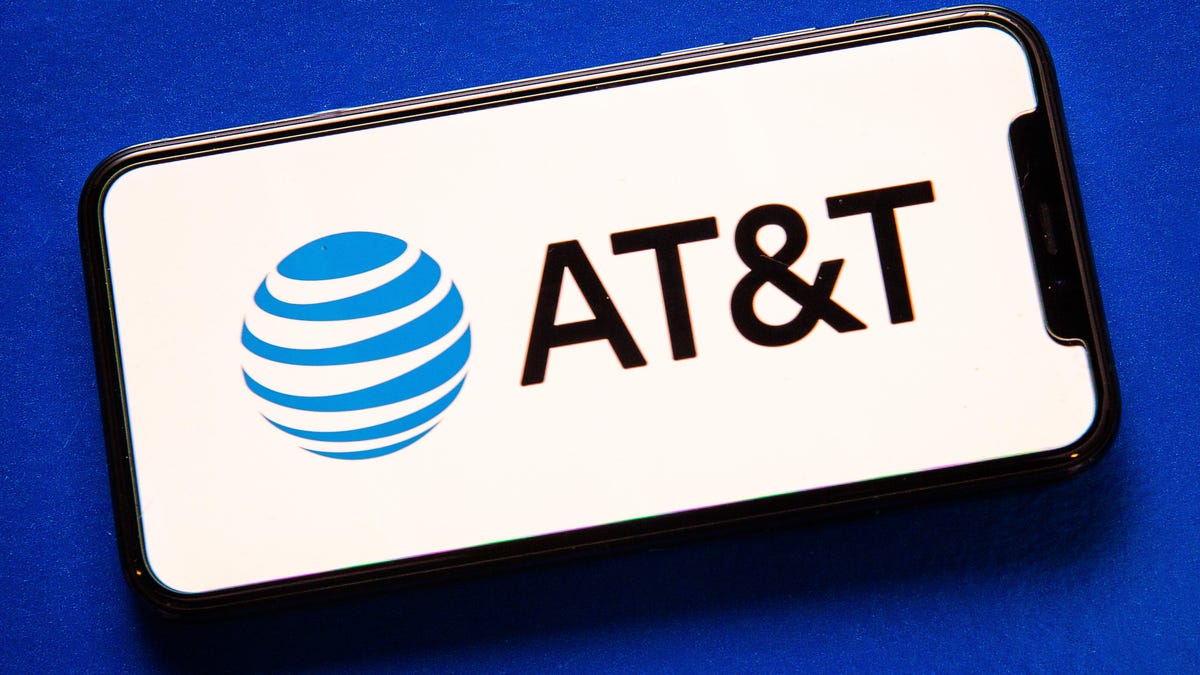AT&T Teams With Satellite Provider AST SpaceMobile as It Looks to Boost Coverage
Another day, another carrier looking to bolster its coverage with a satellite company.

T-Mobile has partnered with SpaceX to boost its coverage through SpaceX's Starlink satellite network. Verizon has been talking about working with Amazon's Project Kuiper program. Now AT&T has announced a new satellite partner of its own.
On Tuesday the carrier announced a new partnership with AST SpaceMobile, a satellite company, to use its low Earth orbit satellites to help bolster AT&T's terrestrial coverage. In a video about the partnership, Chris Sambar, AT&T's president of network, says that the wireless carrier has received "conditional approval" to use some of its wireless spectrum to connect cell phones to the satellites.
In the video, Sambar quickly goes through a few broad applications ranging from helping its FirstNet first-responder network to business applications like "remote agriculture" and "remote machinery."
AT&T already has a satellite partnership with satellite company OneWeb to offer connections to the wireless carrier's business users but hadn't announced any consumer-focused satellite service.
Sambar does, however, hint at a possible consumer application as he describes how his mother-in-law's drive from rural Virginia to Richmond to "see her kids and grandkids" includes a road that currently struggles for coverage from "any wireless carrier." That drive, he says, could potentially be covered by a "space-based mobile solution."
AT&T tells CNET that it plans to use the service to offer "integrated, complementary and real connectivity from satellite-based solutions for voice, data and video services."
As for device support, AT&T says the service is "intended to integrate with all of our customers' devices using LTE and 5G broadband on our existing mobile network." The carrier, however, says it is "too early" to say if it will charge extra for the service or include it with customers' existing plans.
In its announcement of the SpaceX deal earlier this year, T-Mobile similarly said that the "vast majority of smartphones" already on its network will be compatible with its satellite-based service and that users won't necessarily need to buy a new phone to tap into that signal.
T-Mobile CEO Mike Sievert has also said that his company intends to include satellite access with T-Mobile's "most popular plans," though some older or cheaper plans may need to pay a monthly fee to get the feature.
Verizon, while the first to announce a space partner in October 2021, hasn't detailed its plans for connecting phones to satellites. It has instead previously told CNET that it was looking at using Amazon's Project Kuiper for to "make the entire map of the US red," by providing backhaul connections to its cell phone towers in areas that lack fast and reliable internet connections.
As for when AT&T and AST SpaceMobile's service might start to appear, AST SpaceMobile has previously talked about testing its "direct-to-cell satellite capabilities" during the first quarter of next year before launching its first five commercial satellites in "late 2023." AT&T plans to join this testing in the first quarter.
Scott Wisniewski, chief strategy officer at AST SpaceMobile, tells CNET in a statement that after the launch of those satellites next year it will be able to "offer intermittent broadband services in 2024."

